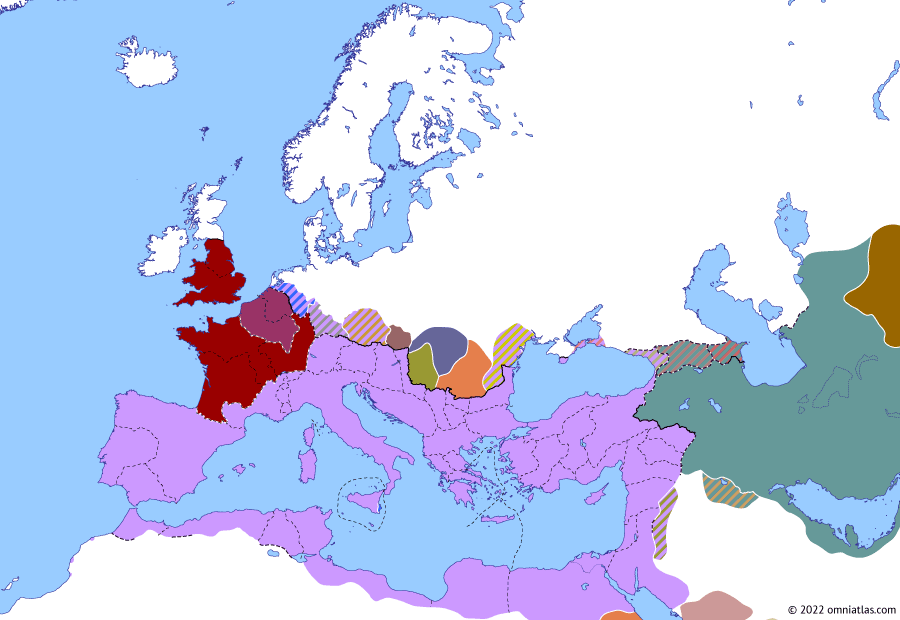Europe 280: Proculus and Bonosus
late 280
late 280
Crisis of the Third Century: Restoration
-27–68 Julio-Claudian Dynasty
68–96 Flavian Dynasty
96–192 Nerva–Antonine Dynasty
192–235 Severan Dynasty
235–268 Crisis of the Third Century: Turmoil
268–284 Crisis of the Third Century: Restoration
284–311 Diocletian and the Tetrarchy
311–363 Constantinian Dynasty
363–383 Valentinianic Dynasty
383–408 Theodosian Dynasty: Divided Empire
408–425 Theodosian Dynasty: The West Besieged
425–441 Theodosian Dynasty: Fall of Africa
441–457 Theodosian Dynasty: Hunnic Wars
457–1803 NO MAPS FOR THIS PERIOD YET
1803–1814 Napoleonic Wars
1814–1815 Vienna and Waterloo
1815–1848 Congress Europe
1848–1850 Springtime of Peoples
1850–1859 Crimean War
1859–1862 Italian Unification
1862–1871 German Unification
1871–1914 Imperial Europe
1914–1918 Great War
1918–1922 Armistice Europe
1922–1939 Rise of Fascism
1939–1942 World War II: Blitzkrieg
1942–1945 World War II: Fall of the Third Reich
1945–1990 Cold War
1990–2010 Post-Cold War Europe
2010–pres Crisis of Europe
Proculus and Bonosus
268/ 269 Battle of Lake Benacus
Apr 270 Wars of Claudius Gothicus
Oct 270 Aurelian vs Quintillus
spr 271 Battle of Fano
sum 271 Challengers of Aurelian
spr 272 Battle of Immae
sum 272 Downfall of Zenobia
Jul 273 Revolt of Firmus
sum 274 Battle of Châlons
Sep 275 Assassination of Aurelian
early 276 Marcus Claudius Tacitus
Aug 276 Probus vs Florian
sum 278 Probus’ Restoration of Gaul
late 280 Proculus and Bonosus
Jul 283 Carus’ Persian campaign
Following his victories over the Germanic tribes, Probus headed east to confront the Persians. However, as he approached Syria in 280, news of renewed unrest in the west forced him to turn back. This time two usurpers, Proculus and Bonosus, had risen up in Gaul. It’s unclear as to whether or not the two were aligned; either way, Probus defeated them both by 281.
